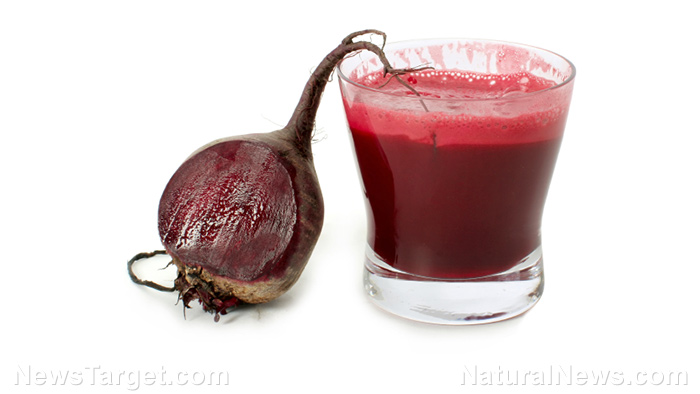
Advertisement
Exercising regularly and eating well is the best way to stay in shape, but physical activity can take a toll on you, especially if you’re often drained of energy after an intense workout.
If you’re parched after working out, why not enjoy a refreshing glass of beetroot juice? According to a study, beetroot juice promotes faster muscle healing after intense physical activities.
In the 2017 study, which was conducted by British researchers from the University of Northumbria in the UK, 30 active men were monitored while they exercised at least twice a week. The male participants were aged 18 to 28 years old.
The researchers instructed the volunteers to do 100 intensive jump exercises that caused leg muscle damage. Over the next three days, the men were given a 250 ml serving of beetroot juice, a 125 ml serving of juice or a placebo.
The placebo drink had the same amount of calories and carbohydrates as the beetroot juice given to the rest of the group.
“Three days of consuming the higher beetroot juice dose enhanced participants’ recovery. Those in the beetroot juice group jumped an average of 18 per cent higher than those in the placebo group two days after completing the exercise bout,” lead researcher Dr. Tom Clifford said.
The research team also observed significant reductions in leg soreness in participants who consumed the beetroot juice. The health experts noted that the superfood may greatly benefit people with little time between exercise sessions.
Beetroot’s powerful benefits on muscle health
The recent study was only the latest in a slew of research demonstrating the efficacy of beetroot in maintaining muscle health.
In fact, a study published in 2016 revealed that beetroot juice is highly effective in boosting muscle recovery, function and performance following bouts of repeated sprint exercise.
As part of the research, health experts examined 20 male, team-sports players who were instructed to take either beetroot juice or placebo for three days after an initial repeated sprint test as well as after a second repeated sprint test.
The researchers found that counter-movement jumps and reactive strength index were 7.6% and 13.8% higher, respectively, following beetroot juice consumption compared with placebo. The scientists also observed that the participants’ pressure-pain threshold was 10.4% higher after drinking beetroot juice.
“In conclusion, this study demonstrates that consuming BTJ (beetroot juice) for four days after a muscle damaging RST (repeated sprint tests) attenuated muscle pain and decrements in dynamic muscle function, as measured by CMJ (counter movement jump) and RI (reactive strength index). These effects did not translate to improved recovery of isometric strength or sprint performance, however. These data suggest BTJ could be applied as a post-exercise recovery strategy to attenuate losses in some aspects of dynamic muscle function in team-sports players between bouts of repeated sprint exercise; however, because sprint performance was unchanged, how transferable these findings are to real-world team-sport competition is unclear. Future studies are needed to clarify the underlying cellular mechanisms, as the beneficial effects of BTJ were shown to be unrelated to systemic changes in oxidative stress or other biochemical markers of muscle damage,” the researchers wrote online.
Another study published in Circulation: Heart Failure showed that drinking beetroot juice may significantly increase muscle strength. In order to carry out the study, a team of researchers instructed study volunteers to consume either a normal, nitrate-rich beetroot juice or a placebo beetroot juice with the nitrate content removed.
The findings showed that the participants exhibited a 13% increase in power in muscles that extended to the knee at about two hours after drinking the beetroot juice with high nitrate levels. According to the experts, the benefits were more pronounced when the muscles moved at greater velocities.
Furthermore, the researchers did not observe any adverse side effects — such as increased heart rates or lower blood pressure levels — following beetroot juice consumption.
Sources:
Advertisements







